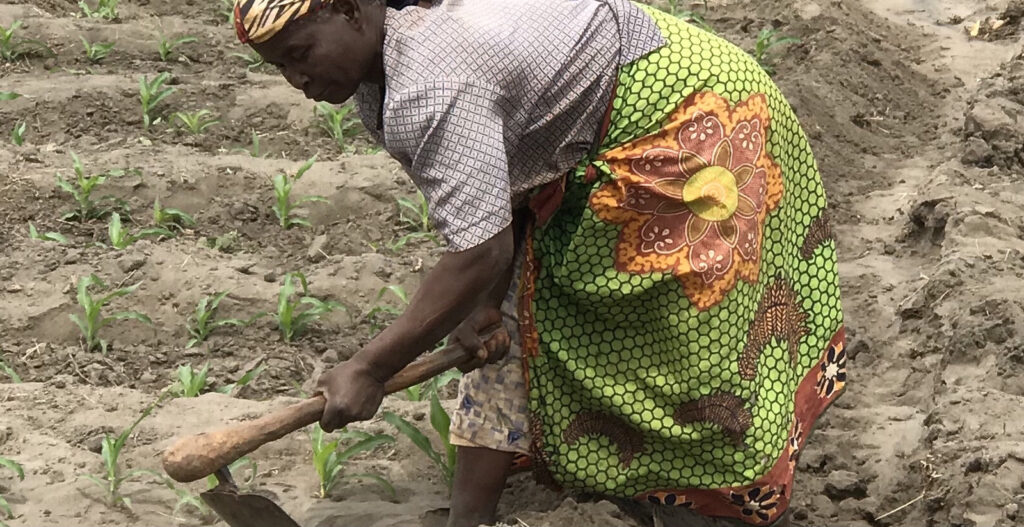
Roadblocks to Progress
Lilongwe, Malawi … Many well-intentioned people see the extreme poverty in emerging nations and believe a simple solution exists. All it takes, they conclude, is sufficient funding. This nagging problem will dissolve if enough money is raised. After all, that has been the answer to many problems in the west! But, in the western world, many countries already have a lot of money and many nations, including ours, has an abundance of natural resources. Additionally, most of the developed world has sizeable infrastructure in place to take advantage of these financial and natural resources. Unfortunately, problems in emerging nations are far more complex, and the various cultural backgrounds add another degree of difficulty to finding a lasting solution. When confronting problems such as generational poverty in Malawi, one must recognize the complexity of the problem, the history of the circumstances, and an array of factors that may not be present in western problem solving.
1. Changing Old Habits:
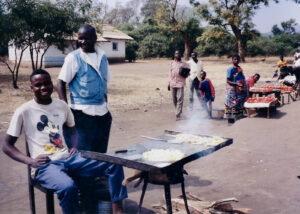
Obviously, a major factor in any culture when trying to bring about change is the need to break habits and patterns that have been in place for many years. In Malawi many of these patterns go back hundreds of years. When trying to increase food production one quickly realizes the world-wide response to change. It could be simply stated as, “Why should we change?, This is the way we have always done it.” With little more than a simple hand hoe, the combined manual labor of the entire family unit, and long hard hours of physical labor, the typical Malawi village family ekes out a living, “the way we have always done it.”
2. Land for Planting:
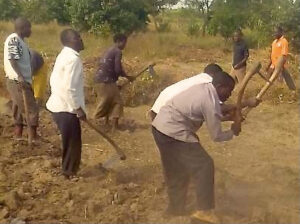
Perhaps an even greater obstacle to overcoming poverty than the pressure of long held habits and traditions is the fact that few farmers have money to purchase enough fertilizer and seed to provide for their immediate family. Even if they can afford seed and fertilizer, few families own enough land outright so they need to rent additional land for farming. If they can afford a large cash outlay for land or rented land, and the cost for additional seed and fertilizer, there is still no assurance the additional crops will be successful.
3. Long Work Hours:
Other roadblocks to increasing food production are the long hours and manual labor required to farm without tractors. This problem creates an additional problem. The lack of farm equipment creates a need for larger families to provide the labor force. Larger families means even more food will be needed. A requirement for more food means more seed, more fertilizer, more land. A problem that creates a problem.
4. Inadequate Storage:
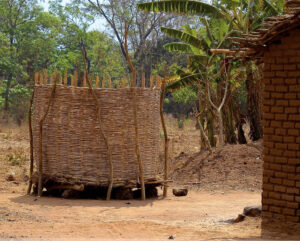
On-site storage is another issue. Most villagers store grain in their homes or in a bamboo bin behind their house. An increase in crop production calls for increased storage. Again, storage containers are something few can afford. To make the jump from a survival farm to a farm that can export food is a jump few can make.
5. Transportation:
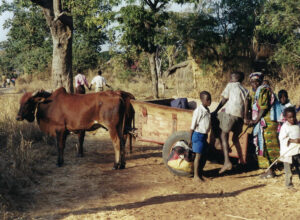
Malawian villagers don’t have vehicles, and they can be seen walking miles to school, medical clinics, church and trading centers. Moving large quantities of grain and produce from a village to a trading center is usually out of the question. Breaking the invisible barrier of a subsistence farmer to a “for profit” farmer can seem generations away. The roads and highways in Malawi further exacerbate this issue. Even with access to adequate vehicles, paved roads are limited, and maintenance on them seems to be near the bottom of the national priorities list.
6. Saving:
If a villager (almost all are subsistence farmers), is fortunate enough to have a bumper crop, another tradition needs to change. Subsistence farmers are not in the habit of storing grain for future use. Usually, there is not enough to store for more than a few months. Secondly, their storage bins do little to protect the grain from mildew, mold and vermin. Malawian villagers have a laudable cultural aspect of “community.” If one family is successful and has an excess, all of their friends, neighbors and family know they can share in the bounty. Without access to proper storage units and the means to put aside some meager savings, villages appear destined to generational poverty.
In light of our differences in culture, life experience and tradition, the Malawi Project is thrilled with its working relationship with our Malawi counterparts that comprise Action for Progress. The Action for Progress Board, Executive Director and staff are all Malawians that come from all three regions of the country. They are able to illuminate the Malawi Project to the specific needs of their countrymen. This then helps the Malawi Project to be efficient and effective stewards of your financial and physical donations. The Action for Progress board and staff affords the Malawi Project the opportunity to deal with day-to-day problems immediately, and with the in-country knowledge and experience that would quite literally be foreign to our western cultures. In spite of the worldwide ramifications of Covid, the Malawi Project turned what would have been a very successful 2020 into an even greater year by helping to create, and then effectively working with, our Malawian friends with Action for Project. We look forward to creating sustainable change to improve the lives of our African friends and tackling some of the problems outlined above. The solutions won’t be easy, but with your continued support, the best is yet to come…
